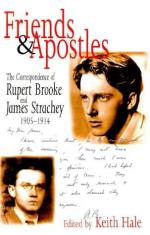|
This section contains 4,110 words (approx. 14 pages at 300 words per page) |

|
SOURCE: "The Falling House that Never Falls: Rupert Brooke and Literary Taste," in British Poetry, 1900-50: Aspects of Tradition, edited by Gary Day and Brian Docherty, St. Martin's Press, 1995, pp. 37-47.
In the following essay, Bloom argues that Brooke should be perceived as a modernist poet and urges a reassessment of his work.
'Rupert Brooke's poetry remains a firm favourite with readers and listeners alike': such might be the opinion of the popular poetry radio programmes broadcast by BBC Radio 4 or, perhaps, the comments in the introduction to yet another anthology of the slim collected works (with a selection of letters added for good measure). Brooke's reputation, which is at stake here, has never rested on anything other than quicksand. The 'worth' or quality of his poetic ability becomes, as has rarely been the case with any but Dylan Thomas, subordinated to a quasibiographical determinism in which the...
|
This section contains 4,110 words (approx. 14 pages at 300 words per page) |

|


